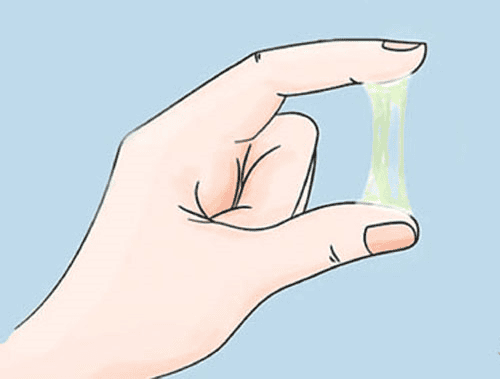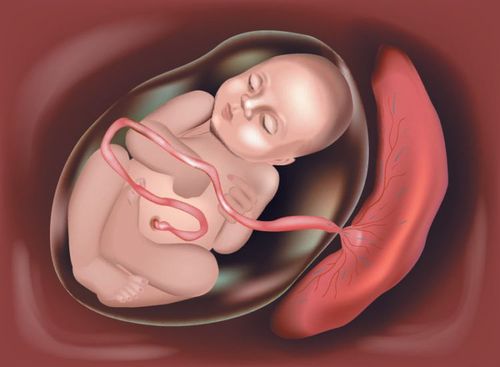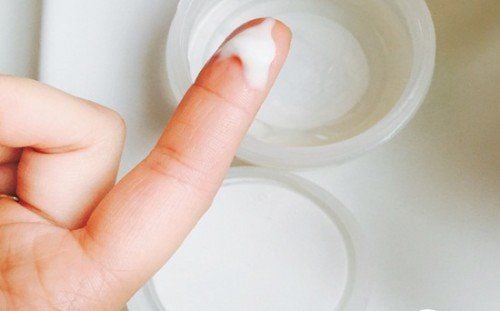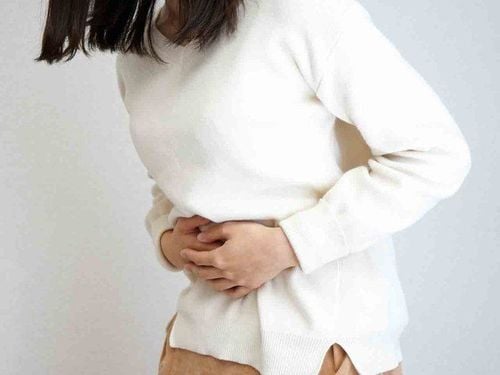This is an automatically translated article.
Adhesions of the uterus is a common condition in women of reproductive age who have had uterine intervention, or had previous genital infections. Adhesions to the uterus can lead to infertility, recurrent spontaneous abortions and many other bad consequences for women's reproductive health.
1. Adhesions to the uterus and causes of uterine adhesions
1.1 Adhesions to the uterine cavity
Inside the uterine cavity is a virtual cavity, normally this cavity is collapsed, the front and back walls of the uterus are close together. The lining of the uterus is lined with a layer of tissue called the endometrium, where an embryo will implant when a woman is pregnant. Because of certain effects, the endometrium is damaged, destroyed, forming scars that make the uterine walls stick together, then the woman will experience adhesions. . This sticky scar can range from mild to severe, causing partial or complete blockage of the uterine lumen, sometimes causing structural changes in the uterus.
1.2 Causes of uterine adhesions
Causes of uterine adhesions in women are often divided into the following groups:
The most common causes of uterine adhesions are trauma, post-procedural injury, surgical intervention in the uterine cavity. . For example, complications after miscarriage or after childbirth (replacement of the placenta, postpartum infection). Abortion at unsafe facilities, or sometimes complications due to interventions in the uterus to treat gynecological diseases can also lead to uterine adhesions. Another less common cause is uterine adhesions due to infection of the endometrium. If you have some gynecological diseases such as an external genital infection, over time, if you are not treated in time, the infection spreads to the uterine cavity, leading to uterine adhesions. Another cause of uterine adhesions in women is severe degeneration of the uterus, specifically the basal layer of the endometrium.
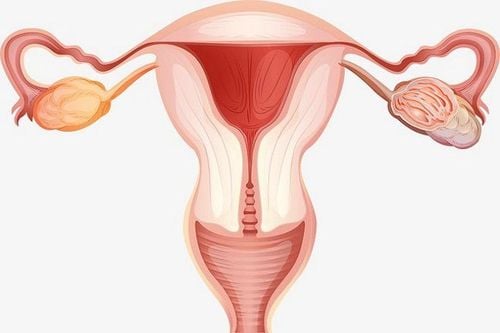
Phụ nữ bị dính buồng tử cung có nguy cơ không thể thụ thai được hoặc sảy thai tự nhiên
2. Risk of spontaneous abortion due to uterine adhesions
Women with uterine adhesions are at risk of being unable to conceive or having repeated spontaneous abortions:
Severe uterine adhesions mean complete or partial occlusion of the uterine lumen that can deprive motherhood of women. Causes infertility in women. The narrowing of the uterus makes it impossible for sperm to reach the egg and fertilization cannot occur. If a woman has only partial adhesions, the egg and sperm can still be fertilized. Although the egg and sperm meet, pregnancy can occur, but because the pregnancy is difficult or impossible to attach to the uterus because the uterine lining has lost its integrity, it is easy to cause: Placenta previa ( placenta in an abnormal position in the uterus), Incarcerated placenta (the placenta cannot be removed but adheres firmly to the uterine muscle after birth), Abnormal bleeding during pregnancy, Accordingly, these conditions All of them can lead to spontaneous abortion in pregnant women. Therefore, pregnant women with uterine adhesions need to be closely monitored by their doctors to prevent spontaneous abortions from occurring.
3. What are the symptoms that signal a woman may have uterine adhesions?
Most women with uterine adhesions have irregular or missed periods. Some women have dysmenorrhea, breast pain, back pain, fatigue... at the end of the month but no period comes out, which may suggest that these subjects still menstruated but not may be excreted outside the uterus due to adhesions to the uterine cavity. Some women with uterine adhesions will notice severe pain in the lower abdomen that occurs after a period of interventions in the uterine cavity, or inflammation in the vagina that occurs before.

Một số phụ nữ bị dính buồng tử cung sẽ nhận thấy đau dữ dội vùng bụng dưới
4. Treatment direction in women with uterine adhesions
Adhesions to the uterus what to do? Because of concerns about health problems caused by uterine adhesions, this is a question many women care about.
Surgical treatment of uterine wall dissection is usually recommended. A specialized instrument will be inserted into the uterus to release the scar. Once the scar is healed, the doctor will place a temporary instrument inside the uterus to keep the uterine walls apart and prevent re-adhesion. Hormonal therapy with estrogen and sometimes NSAIDs and/or antibiotics may be prescribed after surgery to improve the patient's condition. If treated promptly, the patient's chance of becoming pregnant will increase significantly as well as reduce the rate of spontaneous abortion. Usually, women with uterine adhesions who have undergone surgery can become pregnant after one year of treatment.
Women with uterine adhesions often have difficulty conceiving, increasing the risk of complications during pregnancy that can lead to spontaneous abortion. The good news, however, is that women with uterine adhesions can be helped with surgery and medications to increase their chances of conception and reduce complications during pregnancy. If menstruation is sparse, irregular, or amenorrhea, or often experiences severe lower abdominal pain, it is best for women to take the initiative to go to the hospital for examination, examination, and determination of the cause to have a treatment plan. timely treatment, avoid prolonging the disease, making it difficult to handle later.
With many years of experience in the examination and treatment of gynecological diseases, now at Vinmec International General Hospital, it has become one of the major health care centers, capable of examining and screening. screening and treatment of many specialized diseases in children. Therefore, if you have symptoms or a high risk of uterine adhesions, you can go to Vinmec International General Hospital for examination and receive support and advice from doctors and health experts. .
Please dial HOTLINE for more information or register for an appointment HERE. Download MyVinmec app to make appointments faster and to manage your bookings easily.





